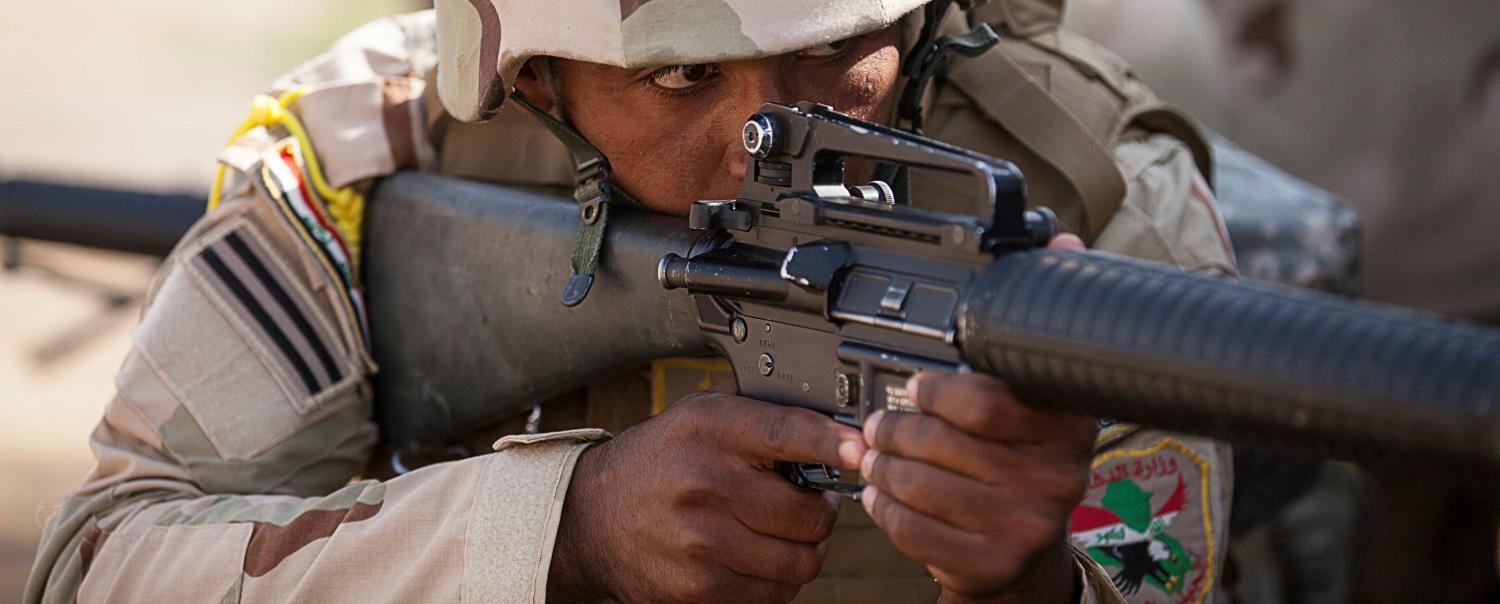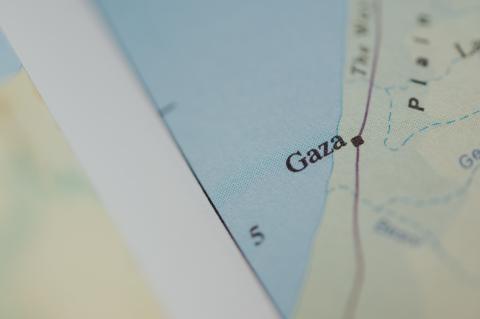Tensions between the Iraqi military and Kurdish Peshmerga fighters are once again threatening to boil over. Iraqi Prime Minister Haider al-Abadi has ordered the military to 'impose security' in and around the oilfields and airport in the province of Kirkuk, a region the Kurds took back from Islamic State in 2014.
Violence between Iraq and the Kurds has involved several atrocities since the Paris agreement in 1919, which handed the British the three Ottoman Provinces of Mosul, Baghdad, and Basra. In the 1980s, for instance, Saddam Hussein used chemical weapons against the Kurds in the infamous al-Anfal campaign, ultimately leading the US to implement a no-fly zone over some areas of Iraq.
This latest round of violence has reared its head in response to the recent positive Kurdish referendum seeking independence from Baghdad. Many, including the US, urged the Kurdish government not to hold a referendum, foreshadowing the violence that would likely follow. However, the Kurds were undeterred from seizing a potential opportunity to gain their independence at a time when borders may once again be redrawn following years of war.
America's confused Middle East strategy has also had a hand in the latest round of violence between Iraqi and Kurdish forces. The Obama Administration adopted a strategy of 'surrogate warfare' that involved building partner capacity to limit the involvement and risk to US forces. This included backing rival factions that share no common political coordination or vision for a post-Islamic State Middle East.
While the Obama Administration adopted this strategy in response to domestic imperatives, including an election promise to disengage US forces from Iraq, the longer-term effects are now being felt. In this instance, both the Iraqi military and Kurdish Peshmerga fighters have been trained and equipped by US forces in the fight against Islamic State. While the Iraqi military has received the bulk of US military assets, it is the Peshmerga fighters that have done most of the heavy lifting in quelling Islamic State. Indeed, the indispensable role that the Peshmerga have played in the war against Islamic State that has prompted many to argue that the US should step forward and champion the Kurds' bid for independence.
A similar picture is unfolding in Syria, where President Trump is arming two sides that are bent on destroying each other: the US is arming Syrian Kurds, who are embroiled in a bloody battle against Turkey, a NATO ally of the US.
And, as I argued in 2015, the Saudi government relied on al Qaeda to overthrow the Houthi rebels in the ongoing war in Yemen – placing the US on the same side as the terrorist organisation responsible for the 9/11 attacks.
Indeed, the most telling aspect of the US strategy in the Middle East is the crucial role Iranian fighters have played in the war against Islamic State. In both Iraq and Syria, the US has relied on Major General Qasem Suleimanu, the leader of Iran's Qud forces, to work alongside Iraq's Shia militia to battle Islamic State in areas of strategic significance such as Tikrit and Mosul.
Last week President Trump further sanctioned Iran and labelled it an 'extremist and fanatical regime'. Trump said he was 'authorising the Treasury Department to further sanction the entire Islamic Revolutionary Guard Corps for its support for terrorism, and to apply sanctions to its officials, agents and affiliates. I urge our allies to join us in taking strong actions to curb Iran's continued dangerous and destabilizing behaviour.'
All this points to an US strategy that has relied on others to do the heavy lifting in the fight against Islamic State.
The US strategy of 'train and equip' is a short-term solution to a long-term and complex war, with many players seeking divergent outcomes. In the end though, this strategy has contributed to America's diminished influence, an emboldened Iran, and more players disgruntled if their war efforts are not recognised at the negotiating table.

